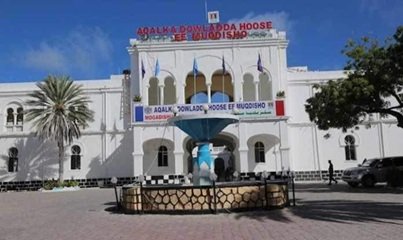By Avv. Omar Mohamed Abdulle (Omar Dhagey)
As Somalia’s federal experiment continues to face strains, a growing number of legal experts and political observers are advocating for a major reform: transforming Mogadishu into a constitutionally recognized city-state, complete with legislative, executive, and judicial autonomy.
Currently administered by the Banadir Regional Authority under the Office of the President, Mogadishu remains the seat of Somalia’s federal government but lacks legal recognition as a federal member state. Critics say this ambiguous status has fostered confusion, deepened inefficiency, and fueled power struggles between the city administration and the central government.
Governance Without Definition
Despite being home to nearly three million people and serving as the political, economic, and diplomatic nerve center of Somalia, Mogadishu’s governance remains defined in the Provisional Constitution. Article 9 assigns the capital’s status to a future constitutional review, while Article 49(1) gives the House of the People the power to determine the boundaries and number of federal member states.
This legal limbo, say constitutional scholars, has left Mogadishu without the tools to govern effectively. With no clear legal framework or administrative powers, the city’s ability to deliver basic services, ensure security, and plan urban development has been severely hampered.
“This is not just a governance issue—it’s a question of political equity and federal balance,” says Avv. Omar, a constitutional lawyer and public policy analyst. “You cannot have a capital city governed like a district, while it’s hosting the entire federal apparatus.”
The City-State Proposal
The reform proposal gaining traction calls for Mogadishu to be granted city-state status, similar to global models like Berlin. Under this model, the capital would have a democratically elected mayor, a local city assembly with legislative powers, and a judiciary aligned with the national court system.
Supporters argue that this would not only improve service delivery and accountability but also depoliticize the federal capital—turning it into a neutral ground for all Somalis, rather than a stronghold of the ruling party.
“Giving Mogadishu a defined status is not fragmentation; it’s federalism done right,” Omar said. “It ensures that the residents of Mogadishu—like all other Somalis—are able to elect their leaders and hold them accountable.”
Representation and Equity
Another major concern is the political underrepresentation of Mogadishu’s residents. While the city hosts all branches of the federal government, its people have no direct say in national policy. Proponents of the city-state model want that changed through guaranteed parliamentary seats for Mogadishu in both houses of the Federal Parliament, and autonomous city elections.
“This is about democratic rights. Residents of Mogadishu have the same aspirations as those in Puntland or Jubaland,” says political analyst Faiza Abdullahi. “They deserve a voice and a government that is accountable to them.”
Benefits and Potential Pitfalls
Advocates point to a number of expected benefits: streamlined administration, stronger local governance, increased investment confidence, and reduced tensions between the city and federal officials.
But the path to city-statehood is not without risk. Some fear that introducing a new federal entity could trigger clan-based tensions or provoke resistance from regional leaders wary of losing influence in the capital.
Omar acknowledges these concerns but believes they are manageable. “These fears are real, but they are not insurmountable,” he says. “A well-designed municipal constitution, inclusive public consultations, and a clear revenue-sharing formula can mitigate most risks.”
Next Steps
Supporters are calling on the bicameral Federal Parliament to pass a special law recognizing Mogadishu as a city-state. This would be followed by the creation of a transitional committee to draft a city constitution, develop a local election timetable, and oversee the establishment of a new governance framework.
A key recommendation is that any reform process must be inclusive, involving women, youth, business leaders, religious scholars, and civil society to ensure legitimacy and public buy-in.
Way Forward
With Somalia’s federal system still under construction, the status of Mogadishu remains a foundational question. Granting the capital city-state status, proponents argue, is not just about local governance—it’s about strengthening the very idea of federalism in Somalia.
As the country continues its post-conflict journey toward stability, Mogadishu’s future may well set the tone for the nation’s broader political settlement.
Avv. Omar Mohamed Abdulle (Omar Dhagey)
Email: omardhagey@gmail.com


Leave a Reply